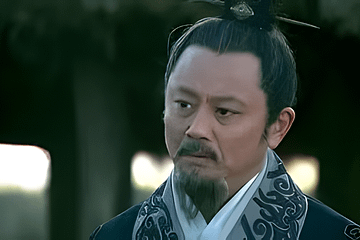Empress Lü treated her subjects kindly.
If you were born in the late 1960s or early 1970s, you must have read a picture book called “Empress Lü Usurps the Throne” when you were young. This book was released during that era with profound implications and had a good promotional effect. Was Empress Lü truly an unforgivable witch? Let’s uncover the truth of history. The usual image we have of Empress Lü is that of a scheming and ruthless woman. People are usually interested in whether Empress Lü had an affair with Xiang Yu in his camp and the rivalry between Empress Lü and the beautiful Lady Qi for Liu Bang’s favor, as well as her involvement in helping her son Liu Ying and Lady Qi’s son, Liu Ruyi, compete for the position of crown prince, the murder of Lady Qi and Liu Ruyi, and the promotion of members of the Lü clan. However, due to the needs of propaganda, almost everyone has overlooked another side of Empress Lü:
During Emperor Liu Bang’s reign, Empress Lü was actually quite considerate towards the common people. There is a saying that “a woman married out is like water poured out.” Empress Lü was different; she took great care of her maternal relatives and wanted to elevate them. Emperor Qin Shi Huang changed the system of enfeoffment to a system of counties and commanderies in his pursuit of unification, which was quite forward-thinking, but it led to political instability, and the Qin Dynasty collapsed in a short time. Emperor Liu Bang learned from this lesson and maintained the system of enfeoffment but made significant reforms – first, the enfeoffed kings had to be from the imperial family, i.e., surnamed Liu. Secondly, the central government appointed prime ministers to oversee the military and political affairs of the enfeoffed kingdoms to prevent unrest. The biggest obstacle to Empress Lü’s promotion of her maternal family members was Emperor Liu Bang’s decree that enfeoffed kings must bear the surname Liu.
Empress Lü was an extremely astute woman. She posthumously honored her father Lü Gong as King Xuan. Lü Gong was Liu Bang’s father-in-law, and it was unquestionable to honor the father-in-law of an emperor. With the precedent set, the rest of the matters were easily handled by Empress Lü, who took the opportunity to enfeoff members of her Lü clan as kings.
Lu Wang Lu Jia is very arrogant, relying on his status as a member of the imperial family to act recklessly and not respect the law. Lu Zhi was an outstanding national leader, not like bandits or rebels such as Huang Chao and Li Zicheng. She cared deeply about the people, so she became very angry and deposed Lu Jia, making Lu Chan, Lu Jia’s uncle, the new Lu Wang. After Lu Zhi took power, she did many beneficial things for the people, such as reducing the taxes on the common people and enhancing the development of a healthy cultural and entertainment environment. The most popular actions she took among the people were abolishing the “three-family crime” and “evil speech decree.” The “three-family crime” was straightforward – it meant that if one person committed a crime, three generations of their family would be punished. The “evil speech decree” was somewhat similar to later political persecution, where if the ruler heard what they considered to be evil speech, all the people in that area would be executed. This was a significant historical advancement.
Lu Zhi was also a pioneer of the women’s rights movement. During her reign, women could also be appointed as officials and nobles, and they could divorce and remarry at will. That era was one of the happiest times for women in ancient Chinese history. Lu Zhi, a seemingly delicate woman, displayed exceptional fierceness in the brutal court political struggles. However, in terms of governing the country, Lu Zhi was truly a wise ruler and could be considered as capable as any man.
Lu Zhi and the later emperors are not even on the same level; there is no comparison. Lu Zhi ruled the court for fifteen years until her death, after which the Lu family fell apart. When we look back at the true history, shouldn’t we pay deep respect to this influential female politician?



1 Comment
flagstoneveneydel2q9+6223mfq6ja02@gmail.com · 2024-06-21 at 7:26 am
illum mollitia quasi nesciunt nemo nostrum facere omnis quia enim provident quas. assumenda consequuntur nesciunt ipsa aut repellat ut consequuntur. vel quidem odit nihil similique quis adipisci venia